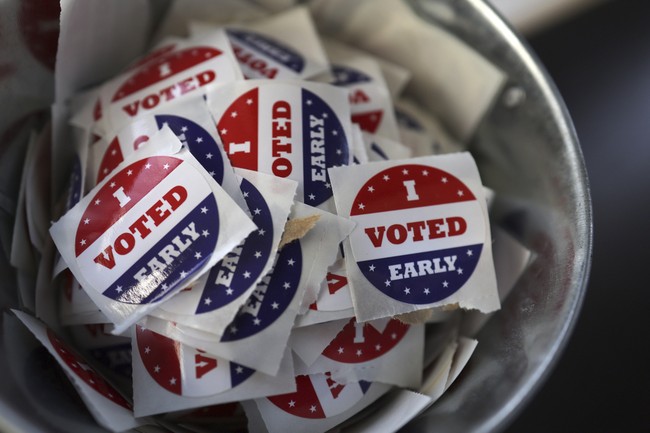
This article was originally published on Daily Citizen - Culture. You can read the original article HERE
All Patches Johnson-Inge wanted was to look up the date of her 12-year-old’s check-up. When Carilion Clinic’s online patient portal no longer showed her son’s information, she assumed it was a glitch.
“I thought I would check it out in a few days, and they’d have it fixed,” she told the Daily Citizen.
But Johnson-Inge’s problem wasn’t a glitch. Carilion Clinic blocks access to their children’s MyChart account when they turn 12. The policy is spelled out in a colorful pamphlet addressed to children, which the Daily Citizen found buried deep in Carilion’s website. Johnson-Inge never saw it.

“Carilion [doesn’t] send you a notification about it,” she explained. “They don’t tell you when you sign up that it’s only good until [your child] turns 12.”
The devoted mother didn’t know anything was wrong until she phoned a friend.
I called one of my girlfriends who takes her daughter to the same pediatrician. I asked, “Are you able to see her records now that she’s turned 12?” I wondered whether you had to renew it or something. She called back and said, “Oh, you’re not going to believe this.”
It was all too real. Carilion had terminated Johnson-Inge’s online access to her son’s information. If she wanted it back, they said, her son would have to sign-off in a private meeting with a doctor.
“I told [the employee I was talking to], ‘Over my dead body,’” Johnson-Inge recalls. “She was not happy with me when we finished our phone call. But if I allowed that to happen, I don’t know what they would have talked about without me.”
Further communication with a Carilion privacy analyst revealed Johnson and her son would have to visit the doctor in person to restore even limited access to his MyChart account. Carilion’s legal department declined to comment.
Johnson-Inge says the bizarre policy violates her parental rights and impedes her ability to care for her son.
Legally, a 12-year-old’s signature means what? Absolutely nothing. They’re not adults. They can’t vote, they can’t drink, they can’t serve in the military. I had to practically sign my life away [at the bank] to let him have his own little kid savings account. Why should he have to give me permission for anything?
She continues,
I pay for him. I drive him everywhere. I mean, he’s my child — my dependent. I feed him. I pay for his school. [My son, my husband and I], we’re a family, and this is just wrong from a pro-family standpoint.
Founding Freedoms Law Center (FFLC), the legal arm of Virginia’s Family Policy Council, tells the Daily Citizen Johnson-Inge isn’t alone. Several parents have also reported struggling to access their children’s online medical records at University of Virginia-affiliated clinics.
An FFLC legal fact-sheet for parents like Johnson-Inge affirms, “In Virginia, as a general rule, healthcare providers are required to make minors’ medical records available to parents if requested.”
The only exception to this rule is “if the healthcare provider believes that parental review of a minor’s records would be reasonably likely to cause the minor or another person substantial harm.”
So, is Carilion’s treatment of Johnson-Inge illegal?
Technically, no. While Virginians have a general right to access their children’s medical records, they don’t have a right to access them online. FFLC is working on a bill that would clarify Virginia parents’ right to access their child’s medical records online and in-person.
Until then, medical groups like Carilion and UVA can continue giving parents the run-around.
But skating by on a legal technicality doesn’t mean hospitals are acting ethically. FFLC’s fact sheet warns parents that hospitals may not inform them of all their rights, especially when it comes to online health portals:
Occasionally, parents are told by healthcare providers that they may only have limited access—or perhaps no access at all — to their minor child’s medical records. … Sometimes, parents are even told, inaccurately, that they may not access some or all of their child’s medical records without their teenager’s express authorizations.
Carillion’s privacy analyst told Johnson-Inge she could still access her son’s information through the hospital’s Medical Records Office. But this right isn’t spelled out anywhere in the PDF laying out Carilion’s MyChart policy.
In fact, the document perpetuates the lie FFLC warns parents against — that kids must consent for parents to see even basic medical information like allergies and vaccines.
For Johnson-Inge, the issue is bigger than medical records or misleading one-pagers. It’s about power.
It’s dangerous [for doctors] to have this level of control over my child and my family. I just think it’s very concerning that they think they can tell me how to run my household or what I have access to for my own child.
Let Johnson-Inge’s experience inform the way you interact with the medical system. Consider carefully whether you are okay allowing a physician to talk to your child privately. You can also ask your child if they would feel comfortable talking to a doctor privately, and if not, encourage them to speak up in the doctor’s office.
Don’t forget to contact your state’s Focus on the Family-allied Family Policy Council to learn about your right to read your child’s medical records online.
Additional Articles and Resources
Doctor Visits and Exam Room Expectations for Parents of Teens
How to Get the Best Care From Your Child’s Doctor
This article was originally published by Daily Citizen - Culture. We only curate news from sources that align with the core values of our intended conservative audience. If you like the news you read here we encourage you to utilize the original sources for even more great news and opinions you can trust!










Comments